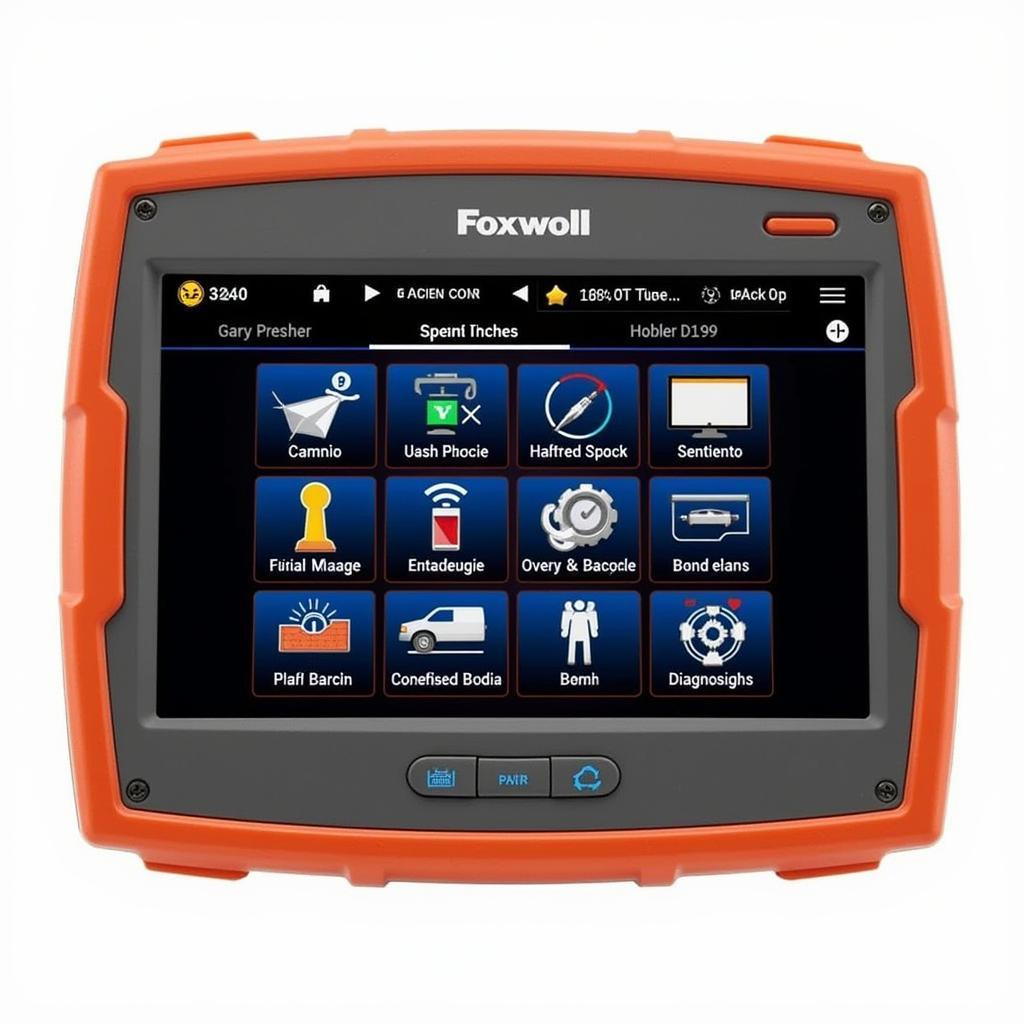Catherine Foxwell is a name synonymous with modern automotive diagnostics. In an age where vehicles are increasingly reliant on complex electronic systems, having the right diagnostic tools and knowledge is crucial. This article will delve into the world of automotive diagnostics, exploring the importance of staying updated, the role of specialized tools, and how figures like Catherine Foxwell contribute to this ever-evolving field.
The Evolving Landscape of Automotive Diagnostics
Gone are the days of simple mechanical fixes. Today’s vehicles are powered by intricate networks of Electronic Control Units (ECUs), sensors, and actuators that communicate through complex data streams. This shift towards sophisticated electronics has revolutionized automotive diagnostics, demanding a new breed of technicians equipped with advanced knowledge and tools.
The Need for Specialized Diagnostic Tools
Modern vehicles require equally modern diagnostic tools. Basic code readers, while useful for retrieving generic fault codes, often lack the depth and functionality to effectively diagnose and troubleshoot complex electronic issues.
[image-1|advanced-diagnostic-scanner|Advanced Diagnostic Scanner|An image showcasing a professional-grade automotive diagnostic scanner plugged into a car’s OBD-II port. The scanner’s screen displays live data streams and diagnostic information.]
This is where specialized diagnostic scanners come into play. These advanced tools provide comprehensive access to vehicle systems, enabling technicians to:
- Retrieve and interpret manufacturer-specific fault codes
- View live data streams from various sensors and systems
- Perform active tests to isolate faulty components
- Program and configure ECUs
- Access repair information and technical bulletins
Investing in high-quality diagnostic equipment is paramount for any automotive professional serious about staying ahead of the curve.
The Importance of Continuous Learning
The automotive industry is in a constant state of flux, with new technologies and vehicle models emerging regularly. To remain effective, automotive technicians must prioritize continuous learning and professional development.
Catherine Foxwell: A Leading Voice in Automotive Education
Catherine Foxwell exemplifies the commitment to education within the automotive industry. Her expertise in automotive diagnostics and dedication to sharing knowledge have made her a respected figure in the field.
“Staying informed about the latest advancements in automotive technology is non-negotiable in this profession. The moment you stop learning is the moment you fall behind.” – Catherine Foxwell
By staying abreast of industry trends, attending training sessions, and actively seeking out new information, technicians can ensure they possess the skills and expertise required to diagnose and repair the vehicles of today and tomorrow.
Common Automotive Diagnostic Challenges and Solutions
Even with the right tools and knowledge, automotive diagnostics can present unique challenges. Let’s explore some common issues technicians encounter and how to approach them:
1. Intermittent Electrical Faults
Intermittent faults can be particularly frustrating to diagnose. These issues may appear and disappear seemingly at random, making it difficult to pinpoint the root cause.
Solution: Utilize advanced diagnostic scanners capable of recording live data streams over extended periods. This data logging functionality can help identify patterns and anomalies that might otherwise go unnoticed.
2. Complex Network Communication Issues
Modern vehicles rely heavily on network communication between various ECUs. Issues within these networks can lead to a wide array of seemingly unrelated symptoms.
[image-2|vehicle-network-diagram|Vehicle Network Diagram|A schematic diagram illustrating the intricate network of ECUs, sensors, and actuators found in a modern vehicle. The diagram highlights the importance of understanding network communication for effective diagnostics.]
Solution: Employing diagnostic tools with advanced network scanning and analysis capabilities can help diagnose communication errors, pinpoint faulty modules, and ensure seamless data flow between critical systems.
3. Software-Related Problems
As vehicles become increasingly reliant on software, the potential for software-related issues rises. These issues can manifest in various ways, from performance hiccups to complete system failures.
Solution: Access to manufacturer-specific diagnostic software and the ability to perform software updates and reprogramming are essential for addressing software-related problems effectively.
Conclusion
Navigating the world of modern automotive diagnostics requires a proactive approach. By embracing continuous learning, utilizing specialized diagnostic tools, and staying informed about industry trends, automotive professionals can confidently tackle the challenges posed by today’s technologically advanced vehicles. As Catherine Foxwell aptly emphasizes, ongoing education is the key to staying ahead in this dynamic field.
For expert assistance with automotive diagnostic equipment and solutions, contact ScanToolUS at +1 (641) 206-8880 or visit our office at 1615 S Laramie Ave, Cicero, IL 60804, USA.
Frequently Asked Questions
1. What is the importance of using OEM diagnostic software?
OEM (Original Equipment Manufacturer) software provides access to manufacturer-specific diagnostic procedures, coding, and programming functions that generic tools may lack.
2. How often should I update my diagnostic software?
Regular software updates are crucial for ensuring compatibility with the latest vehicle models and accessing new features and bug fixes.
3. Can I perform automotive diagnostics myself?
While basic code readers are available for DIY enthusiasts, complex diagnostics often require specialized knowledge and tools best left to trained professionals.
4. What are the benefits of using a professional automotive diagnostic service?
Professional technicians possess the expertise, experience, and equipment necessary to diagnose and resolve complex automotive issues accurately and efficiently.
5. How can I stay updated on the latest advancements in automotive diagnostics?
Attending industry events, subscribing to automotive publications, and following industry experts like Catherine Foxwell are excellent ways to stay informed about the latest trends and technologies.

